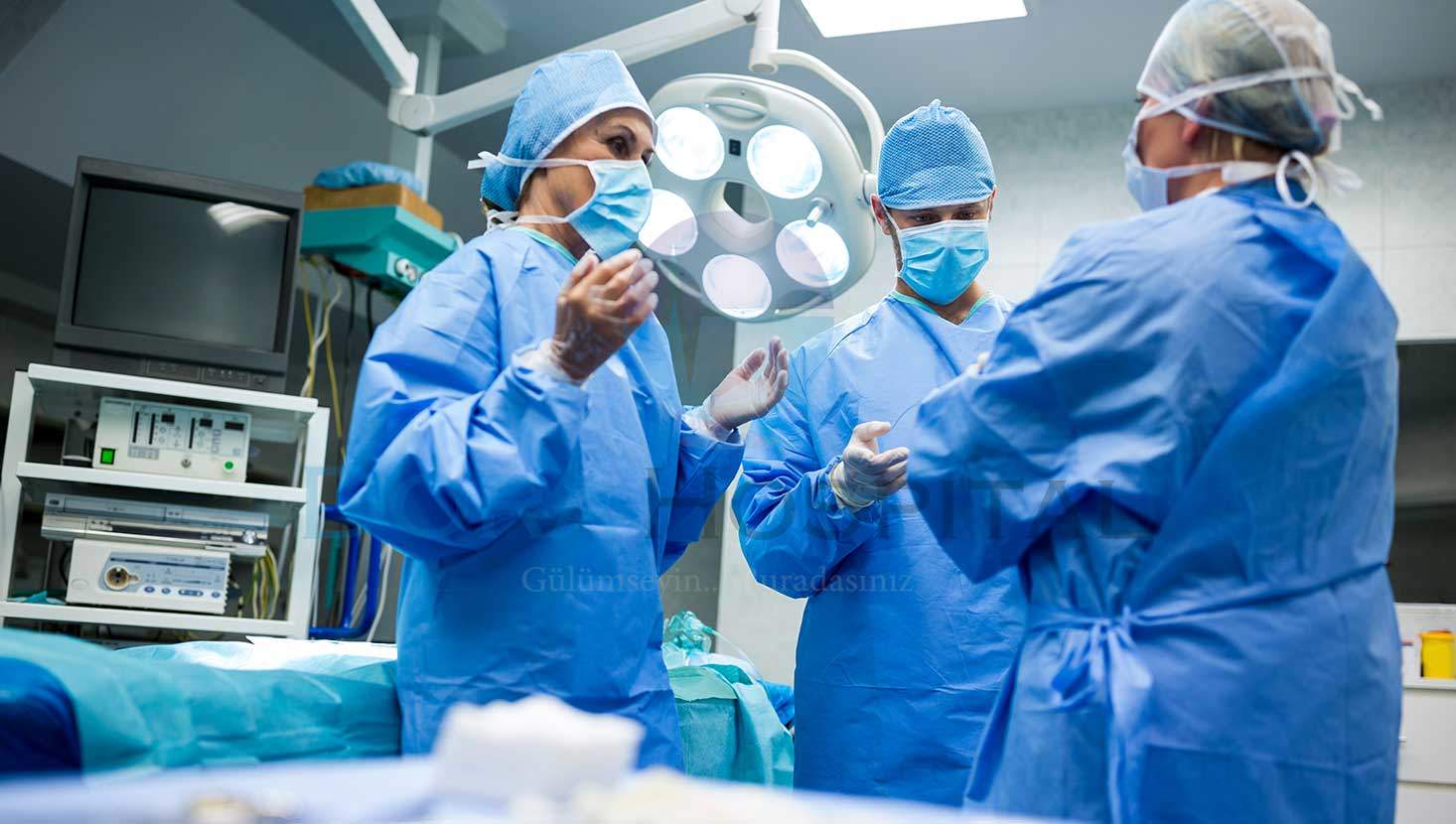We Are Always Here for Your Health.
A Healthy life is everyone's right!
FILL IN THE FORM TO GET QUOTE
General Surgery
General surgery focuses on the treatment of local and systemic problems in the body by using several surgical methods. Additionally, it can be defined as a technical discipline that includes a number of general principles including the issues of the endocrine and metabolic response to the injuries, wound healing, and affects many surgical and basic medical branches in terms of their development.
The word surgery originates from the Latin word "chirurgiae" and means "handicraft".
What is General Surgery?
Surgery is one of the oldest branches of medicine. In addition, it is based on the principle of healing the diseases that cannot be cured with medication or other treatment methods, the structural defects in the body, the injury by surgery or transforming the diseased organ into its natural and physiological state by cutting or removing it.
What does General Surgery Examine?
The types of surgical methods are often referred to the name of the organ or the system to on which it depends. All of laparoscopic and endoscopic surgical procedures in the thyroid gland (i.e. goiter), breast, small intestine, stomach, esophagus, large intestine, hernia, anus, gall bladder, liver, rectum, bile ducts are included in the field of General Surgery. When it is divided according to its systems; the breast surgery, the goiter surgery, the anus and rectum surgeries, the small and large intestine surgeries, the esophagus surgery, the stomach surgery, the duodenal surgery, the hernia and liver surgeries are all included in this field. In some cases, the field of General Surgery aims not only to proceed an operation, but also protected the patient from a surgery by preventive medicine.
The General Surgery functions in cooperation and coordination with many disciplines due to its wide area of interest. The cancer cases comprise of a significant number of General Surgery patients. For planning the diagnosis, surgery and subsequent treatment stages in these patients, the Department of General Surgery consults with Radiology-Interventional Radiology, Gastroenterology, Medical, Radiation Oncology and Pathology.
Another area of interest in the field of General Surgery is the traumatology. Due to the frequent presence of multiple organ system injuries in patients with trauma, the Departments of Neurosurgery, Cardiovascular Surgery, Orthopedics and Urology are consulted with. The Department of General Surgery carries the responsibility of all these branches of medicine, especially in severe multi-organ injuries.


Which Diseases Does General Surgery Deal with?
The department of General Surgery, which is known as External Medicine among the people, is one of the most important and comprehensive fields of medicine. Providing information on which diseases the department of General Surgery deals with may be useful for the readers. However, which diseases does General Surgery deal with?
The General Surgery Deal with The Diseases of;
- The abdomen itself and its content,
- The gastrointestinal system,
- The vascular, trauma, endocrine, oncologic and congenital disorders, including the head and neck tumors, especially skin tumors, thyroid, salivary glands, oral cavity and parathyroid,
- The endocrine system, including the parathyroid, thyroid, endocrine, adrenal and endocrine pancreas,
- The vascular system excluding the intracranial vessels and heart,
- The surgical oncology, including the coordinated multimodal methods used in the screening of cancer patients, surgical adjuvant therapies, surveillance, rehabilitation and follow-up,
- A full-fledged care of patients with critical surgical conditions in the emergency room, intensive care units and the trauma units, the burn units of intensive care,
- A comprehensive management of trauma, including musculoskeletal, hand-head injuries. Responsibility in all stages of care for injured patients can be determined as the basic component of the department of General Surgery.
The department of General Surgery generally deals with such diseases completely. The patients having one of these diseases will be directed to the department of General Surgery. When necessary, all diseases examine by the General Surgery can be defined in this way.
